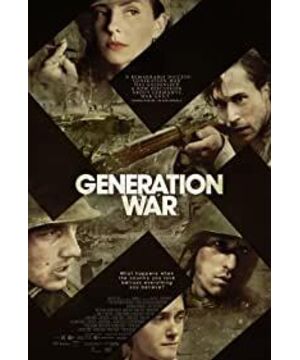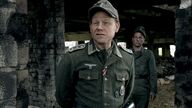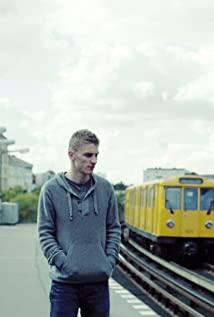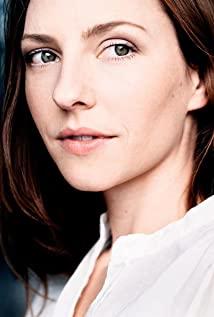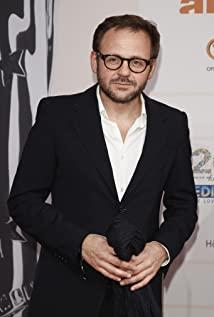The background of the short drama is the theme of World War II. The previous contact with the theme of World War II was still on the documentary channel - "The Great Patriotic War". , the documentary is from an overhead perspective. The death of personnel in war is just the replacement of numbers, not flesh and blood. The short drama intersperses the fate of ordinary people, making the war three-dimensional and real. In general, , The plot of the short play is more compact, like a movie.
William, a staunch defender of the country, gradually lost his faith under the baptism of war, because a war is a hero only if he wins, and if he loses, no matter how heroic he is, it is useless, so in the end he failed in a meaningless charge and got lost, avoiding the war To find peace, the feelings for Charlotte are out of responsibility and have not spoken, but the play gives him a chance to meet again.
Friedhelm, who likes to read, is also a representative of scholars who have changed under the torrent of the times. He is a prophecy at gatherings. He is timid on the battlefield. Later, he can face and shoot ordinary people calmly and become a qualified soldier. Crisis, his transformation is more intuitive and brings us the erasure of human personality in war. A recruit similar to him is also arranged in the play, but the recruit has not been able to escape the wheel of the times as many times as he can. He is the representative of the scholars in the war, and he has already bid farewell to the world before he can get rid of his childishness. If Friedhelm knew that William was not dead, or that his father could face him, it might not have led to his death. In the end, he was tired of the war and died on the eve of dawn. The meaningless days made him look for death calmly, and it also promoted the final short-term death. The climax of the play.
Charlotte, perhaps the purest person in the play, faced the brutal battlefield situation and broke through her inner line of defense. Finally, knowing that William had passed away, she took the initiative to dedicate herself to a doctor, perhaps also a sustenance in the war, and then she stayed kindly again. In the hospital, the viewers who were defiled by the Russian soldiers and stood in the perspective of God could not help but sigh. The destruction of beautiful things is the main theme of the war. Fortunately, they finally returned.
Greta, who may have dedicated himself to a high-ranking German officer for her boyfriend, or may be a little selfish, lamented that he had been a childhood sweetheart, but ended up like this. At the same time, it is hard to speculate that the high-ranking official did not help her boyfriend escape but also contributed to Greta's death, but this It may be a portrayal of the war, and Sicily has the same scene. Maybe it is a more decent way in the play. Survival is everything.
Viktor, the persecuted person, is also a tangled body of contradictions. When facing the Russian army, he is a German, and when facing the Germans, he is a Jew who was sent to a concentration camp. What is his home? There is no way to protect the lover, only to be rejected by the lover from a distance, go to the safe place that the lover dedicates in exchange, and finally be separated from the lover's yin and yang, mourning his misfortune!
The music at the end of the series is deeply rooted in the hearts of the people, from calm to joyful jumping of the piano. In the picture, there is a gathering of the five people at the beginning of the film, and then to the violin solo, which ends the picture. When we meet again, we find that the old man has passed away, and the five good friends have lost two of them. Can the remaining three be called complete people under the baptism of war? "Our" parents are the most realistic portrayal of the impermanence of war, and they are also the bell ringers who hope that war can be far away from this generation.
View more about Generation War reviews


